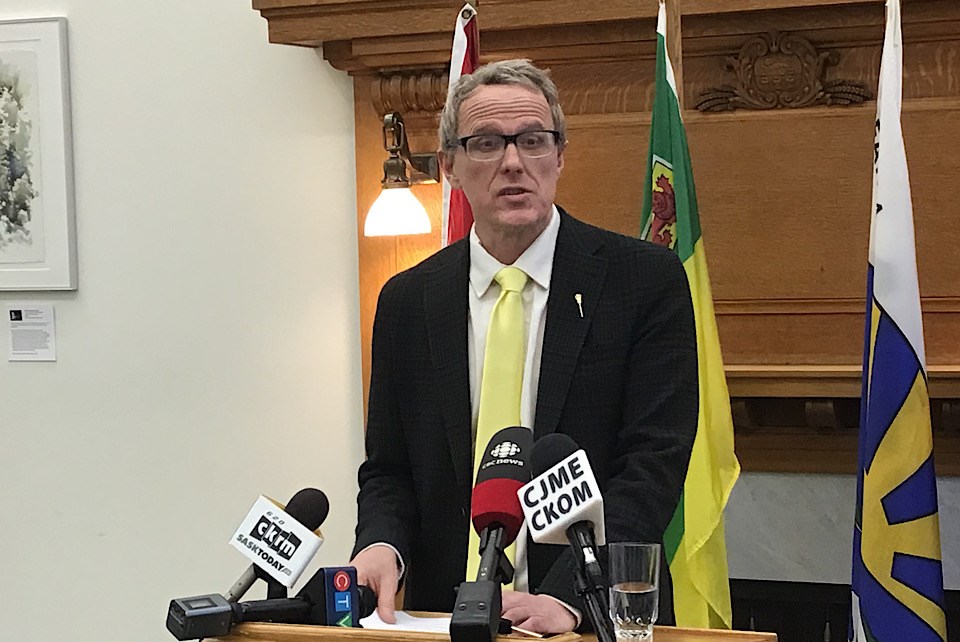REGINA - The opposition New Democrats are accusing the Sask Party government of withdrawing its support for a Weyburn man struggling with health challenges.
Fred Sandeski, who was struggling to afford to pay for both end-of-life care and for rent.
The NDP Seniors Critic Keith Jorgenson had said Fred and his wife Teresa had tried reaching out to the government for answers and had gotten nowhere. Then after the issue was raised in the Legislature, Minister of Health Jeremy Cockrill “acted shocked,” said Jorgenson, and said he would immediately reach out.
“When the cameras were rolling, the government said it would fix this problem, but as soon as the cameras were turned off, and the media interest subsided, Fred was once again left on his own,” said Jorgenson.
Jorgenson told reporters that afterwards Sandeski received one call from the ministry, from a ministerial assistant, telling him the minister would make it right.
“Then, after all the stories were published, the government officials told Fred that shockingly he is not yet sick enough to require end-of-life care,” said Jorgensen.
Jorgenson also noted that after that call from the ministry, all contact between the Sandeskis and the government was initiated by the Sandeskis, and that there had been no concrete action taken.
“Fred’s doctors have given him just weeks left to live. The Sask. Party has turned their backs on a dying man. It’s the same old Sask. Party. We’re talking about end-of-life care that only costs $45 a day. This is the care that was promised when the cameras were rolling. It’s care that the Saskatchewan people are frankly entitled to. Friends and neighbours in Weyburn shouldn’t have to hold fundraisers, so Fred can die with dignity. Saskatchewan seniors like Fred helped build this province, and they deserve to age and die with dignity.”
Right now Fred is in hospice, and his wife recently had surgery, said Jorgenson. Jorgenson also said a private citizen in Weyburn has stepped up to help pay for his care on a day-by-day basis,
Jorgenson adds that two separate things are at play here.
“One is that a family… has a dying family member and I think we can all kind of put ourselves in that position where we think of saying goodbye to someone that we care for. One thing that should not be on our mind when that’s happening is worrying about how you’re going to pay for it. You should be putting saying your goodbyes, preparing for the end of your life and not worrying about who is going to foot the bill.
“And the second thing is Fred is someone who helped people all his life and advocated for them, and he wants to make sure, I guess, as he dies that this doesn’t happen to someone else. So I think he’s also trying to make sure that this hole in the system is plugged so someone else doesn’t fall into the same situation that he has.”
Jorgenson adds that this is a problem that the minister “could solve in five minutes if they chose to.”
“How are they going to create faith in the public that they’re going to fix these problems that are big, when they can’t fix tiny problems that take five minutes to fix. It really is appalling.”
The government responds
Â鶹ÊÓƵ reached out to the Ministry of Health for a response. In a statement, they have said the following:
"The Ministry of Health will continue to work with this family to address their concerns.
"It would be inappropriate to comment on details of specific cases.
"The Ministry of Health is committed to providing quality care and ensuring individuals receive the support they need, when and where they need it. In collaboration with the Saskatchewan Health Authority, the Ministry works with patients to identify the most appropriate level of care. Services are designed and delivered based on each person's unique needs.
"Respite care is available for people who normally live at home but are dependent on family for support. Respite care provides temporary relief to families or other primary care providers. There is a standard fee and residents are also responsible for the costs of medications and some personal supplies.
"Long-term care (LTC) is provided when an individual’s needs can no longer be met in the community. This would be income tested. LTC continues to be heavily subsidized in Saskatchewan. Government subsidizes approximately 80 per cent of the overall cost of publicly funded LTC.
"Saskatchewan residents who are assessed as 'end of life stage' upon admission to a special-care home do not pay a monthly resident charge."



